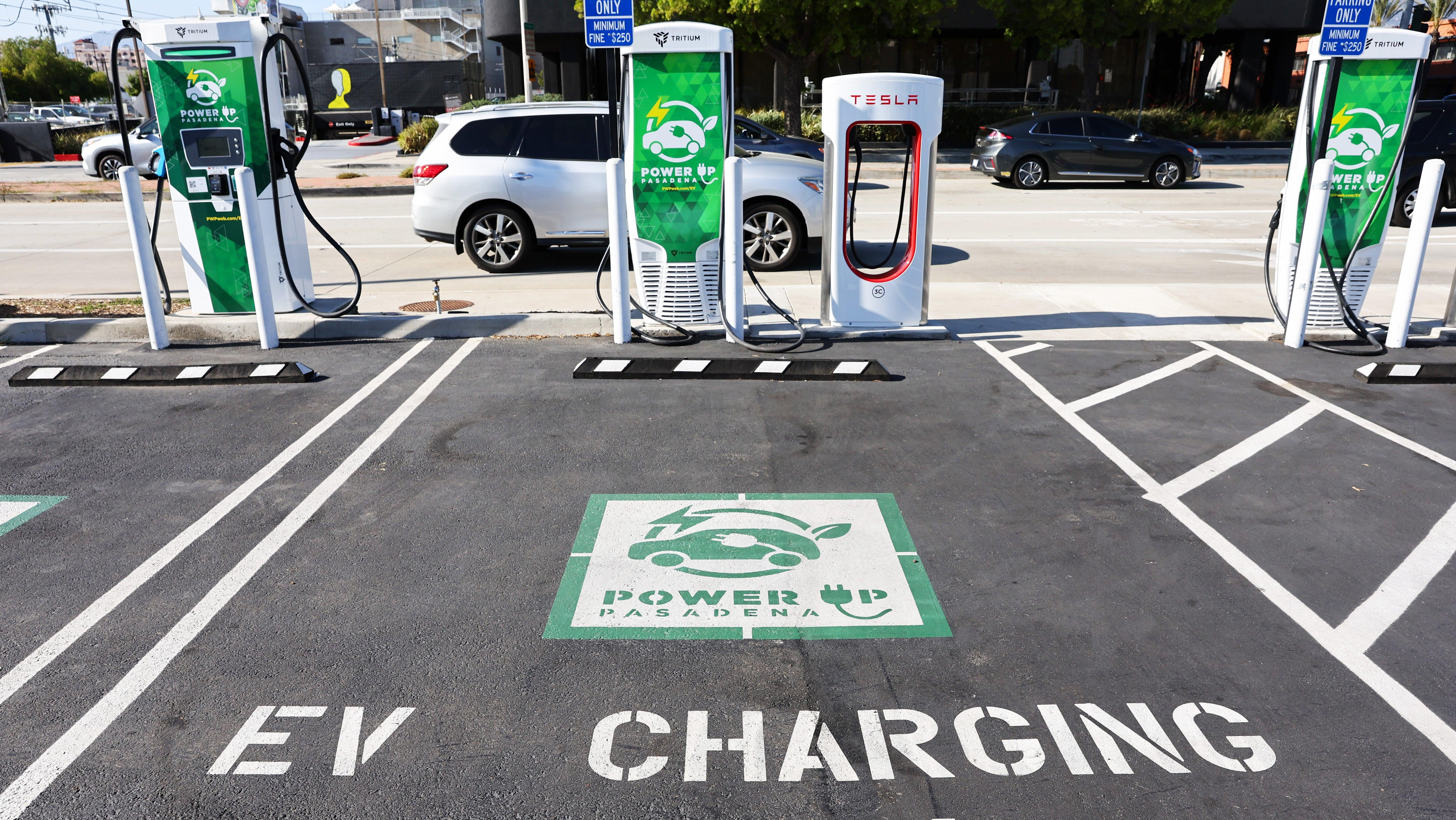Feds Approve $5 Billion Plan For States To Build EV Chargers Along Highways
Every state in the country has received approval to build a nationwide network of EV chargers.
EV charging is about to get more accessible for a lot more people. AP News is reporting that the Transportation Department has given all 50 states final approval to begin constructing a nationwide network of EV chargers built along the country's interstate highway system.
The plan finally moved forward after the Department of Transportation received the final ok from the last 17 states. These last 17 states triggered a plan that calls for a total of $5 billion over the next five years to fund the upgrading or construction of chargers along 75,000 miles of highway coast to coast — and provide $1.5 billion to "jurisdictions nationwide." The final goal is to have over half a million chargers constructed across the U.S.
Construction on new chargers is planned to start in the spring of 2023 with upgrades to existing chargers expected to start immediately. Secretary of Transportation Pete Buttigieg says the chargers will benefit all Americans and "help ensure that Americans in every part of the country — from the largest cities to the most rural communities — can be positioned to unlock the savings and benefits of electric vehicles."
But like EV adoption itself, what the government expects doesn't align with the realities of the situation at state and local levels. Some states are pushing back against the five-year plan, others are ignoring their own realities. California, Texas, and Florida say their grids should be able to handle the new chargers but other states are concerned about their grid capacity or supply issues. Vermont for instance, is saying that the state could incur significant costs associated with maintaining the chargers.
Vermont wrote that "Unmanaged or unplanned for EV charging could cause utilities to incur significant costs to maintain grid reliability and create challenges for grid operators" and that some locations "may also necessitate intensive grid upgrades and buildout."
Mississippi pointed out supply chain issues causing a lack of supplies could affect construction. New Jersey flat out said it would be delaying the constriction of new chargers for a few years. While today is a victory, and is a step in the right direction, it still looks to be a long, bumpy road to mass EV adoption.
